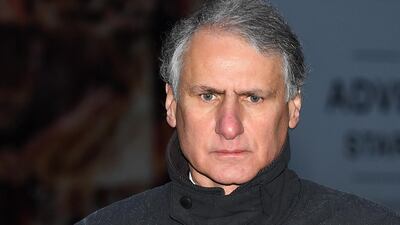British bankers accused of a criminal conspiracy to pay secret multi-million-pound fees to Qatar claimed it was a “bit dodgy” to pay the Gulf state’s prime minister a slice of the money.
Senior officials at Barclays Bank said it was “wrong of a prime minister” to take fees as part of a £4bn deal struck with Qatar during an emergency capital raising project during the global financial crisis of 2008, a London court was told.
"It is what it is,” said Roger Jenkins, ex-head of investment banking in the Middle East, was recorded as telling a colleague. “But the point that's very well made here is you can't have the Prime Minister of Qatar as an adviser to Barclays Bank."
Four Barclays executives are accused of fraud over alleged efforts to hide £322m in commissions to Qatar’s sovereign wealth fund and an investment vehicle controlled by then prime minister Sheikh Hamad bin Jassim bin Jaber Al Thani.
Prosecutors say the bankers agreed to pay the money in return for major investments during two rounds of fund-raising in 2008 but sought to hide the fees as long-term “advisory services” for the Middle East region.
Two senior bankers discussed the fees in recorded conversations played to a jury at Southwark Crown court. Mr Jenkins – described as the gatekeeper to the Qataris – told a senior colleague that “It is a bit dodgy. You can’t as a Prime Minister, take these services.”
__________________
Read more:
UK bank Barclays ‘dead’ without Qatar billions
British bankers ‘lied’ to hide Qatar payments
__________________
The court was told that the bankers drew up a memo to try to hide what they were doing amid concerns they would be “rumbled” over the secret plan to pay Qatar commissions greater than any other investor involved in the £11.2 billion capital injection.
The memo was part of an effort to lay a “misleading audit trail” after senior bankers spoke of their fears of being jailed, a jury heard.
“This is one of these things where…. If you go down, the whole place goes down with you, right?” said Thomas Kalaris, the former head of its wealth management division, in a recorded telephone conversation with another executive.
Richard Boath, the bank’s former European divisional head, said: “Yeah, I mean obviously the jeopardy is that we’re rumbled and people say….this is just a fee in the backdoor”.
Prosecutors say that the executives tried to get around the problem by drawing up the memo which said that Qatar “upon reflection” would settle for fees of less than half that they had already agreed for their £2 billion investment.
In addition, the memo detailed a separate deal to develop “strategy and contacts” in the region in line with similar agreements with Saudi Arabia and Abu Dhabi in return for fees, according to documents shown in court.
“This memo was created in an attempt to lay a misleading audit trial,” said Edward Brown QC, prosecuting for the Serious Fraud Office. He said the memo was “false” and was designed to cover up the extent of the fees agreed between the two sides.
The successful capital raising operation through 2008 meant Barclays was able to avoid a UK government bailout, unlike rival lenders Royal Bank of Scotland and Lloyds.
The private bailout meant that the executives did not lose “very large” bonus payments, the court has heard.
Former Barclays chief executive, John Varley, 62; Mr Jenkins, 63; Mr Kalaris, 63, and Mr Boath, 60, all deny conspiracy to defraud. The trial continues.


